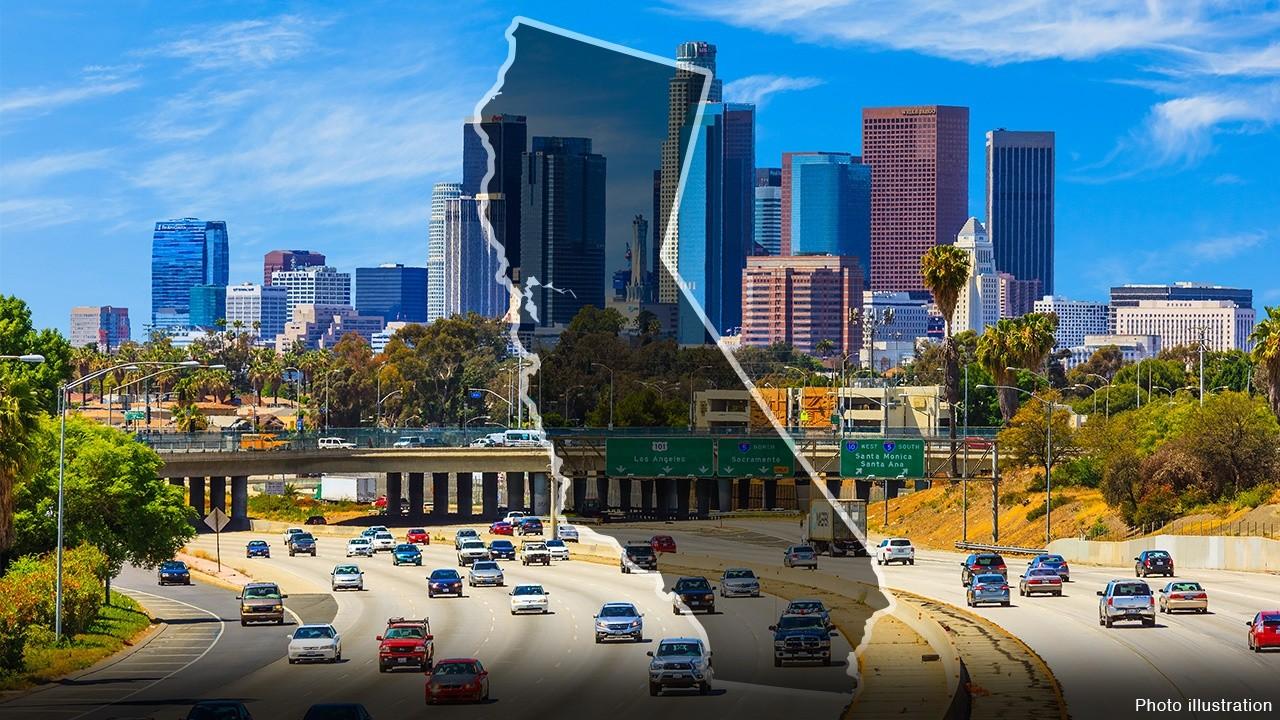California voters put brakes on 5 key progressive policies in 2020 election. What the heck happened?
Let's take a look at five of the specific policies that voters rejected
Once again it appears that California voters have handed Democrats a super-majority in the state legislature, which will further empower them to pursue their radical progressive agenda. Inexplicably, however, based upon returns thus far, at the same time, voters in the state rejected the core policies of these very same leaders. Californians voted against five key progressive policies in statewide propositions.
Let's take a look at five of the specific policies that voters rejected.
1. Proposition 16
Proposition 16 sought to repeal Proposition 209, which implemented a ban on the use of affirmative action by the State, including in college admissions. It was a landmark vote in 1996, a very different time in California. The governor back then was Republican Pete Wilson. Republicans also controlled the State Assembly and Whites were still the majority in the Golden State.
Today, Democrats control every statewide office and hold super-majorities in both houses of the legislature.
Surely, voters in the “new” California were ready to repeal the affirmative action ban.
Nope. It is going down to defeat.
The vote against Proposition 16 is despite the fact that the proposition was worded in a way to hide the proposed return of affirmative action. It was entitled simply, “Allows Diversity as a Factor in Public Employment, Education, and Contracting Decisions.”
The vote to defeat Proposition 16 also flies directly in the face of new laws passed by the legislature this year, including mandating that California corporations have a specific number of minorities on their boards (this goes beyond affirmative action to mandating actual quotas), and a law establishing a task force to investigate and report on reparations for slavery.
2. Proposition 22
Proposition 22 sought to repeal a law passed last year by the legislature which mandated that rideshare drivers be treated as "employees" rather than independent contractors.
The proposition is winning, meaning the voters are effectively vetoing the law passed by the legislature and governor. Perhaps they were persuaded by the fact that the drivers themselves did not want to be "employees."
WHY INVESTORS ARE WELCOMING THE DEMISE OF THE 'BLUE WAVE' AND WHAT IT MEANS FOR NEXT 2 YEARS
Their leaders ignored this inconvenient fact, persuaded instead by unions that the drivers would be much happier as union members. (Former Vice President Joe Biden also supported mandating that rideshare drivers be made employees, but that did not seem to bother California voters who voted for him at a 2-1 clip.)
3. Proposition 21
Proposition 21 sought to expand rent control, permitting local governments to have it apply not just to existing renters, but even to new renters after the property changes hands.
Just last year the legislature passed, and the governor signed, a statewide rent control mandate, becoming just the third state in the nation to do so. -- It was meant to address the lack of “affordable housing” in the state.
WALL STREET RALLIES AS VOTE COUNTS HINT AT DIVIDED GOVERNMENT
California voters however are voting down the rent control measure. They likely recognize that rent control actually acts as an impediment to building new housing and reduces the turnover of properties. These basic economic realities were lost on their leaders.
4. Proposition 15
Proposition 15 sought to overturn a portion of the landmark Proposition 13 measure which placed limits on annual property tax increases.
Proposition 15 sought to remove the restriction only from commercial properties, allowing them to suddenly be taxed based upon the current market price. This would result in dramatic tax increases for commercial and industrial buildings throughout the state, placing huge burdens on business owners, commercial real estate companies, and investors.
As with Proposition 209 noted above, Proposition 13 passed at a very different time in California, back in 1978. And, the new proposition applies only to commercial and industrial properties, meaning the increases will only impact businesses and the wealthy. It was entitled, “Increases Funding Sources for Public Schools . . .” Surely, today’s California voters would support such a measure. After all, our legislature recently imposed new taxes on the wealthy.
Wrong. Proposition 15 is going down to defeat.
5. Proposition 25
Finally, Proposition 25 was a referendum on a new law passed by the legislature and signed by the governor in 2018 which eliminated the cash bail system.
GET FOX BUSINESS ON THE GO BY CLICKING HERE
The law was passed as part of “criminal justice reform.” The concept was that it was not fair that the wealthy can escape jail time while the poor cannot (never mind that judges set bail amounts which take into consideration the wealth of the defendant).
Certainly, on the heels of Black Lives Matter protests, defund the police campaigns, and allegations of unequal application of and sentencing under criminal laws, California voters would support legislature and governor ending cash bail. Not at all. The proposition is losing.
What is going on? Why do California voters keep electing far-left progressives if they do not believe in what they stand for?
It is all about branding. California Democrats have done a great job of convincing its residents that they are on the side of the people, and in particular its large minority populations. They have convinced them that Republicans are racists and care only about the wealthy.
Democrats now outnumber Republicans by about 43% to 23% of registered voters. Thus, an “R” next to your name as a candidate means you start in a 20 point hole.
They have a virtual monopoly on control of the state with few checks and balances. As a result, they have run amok, and able to pursue policies far beyond their mandate.
On Tuesday, California voters reined them in. Maybe next time they will vote them out.
James Breslo is an attorney, host of the "Hidden Truth Show" and founder of RealKast, a new media company. He was formerly a partner at the international law firm Seyfarth Shaw, defending companies and individuals against alleged civil rights violations.
CLICK HERE TO READ MORE ON FOX BUSINESS





















